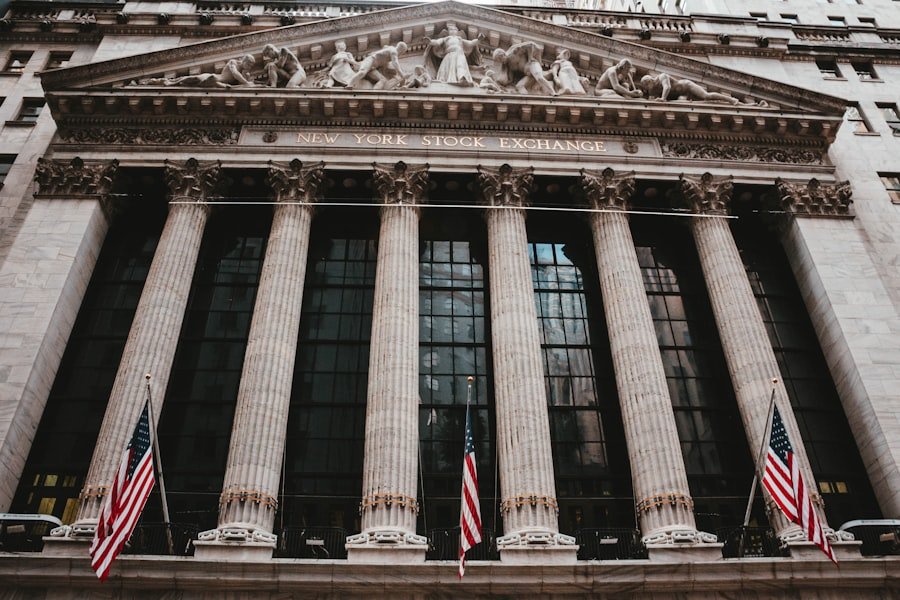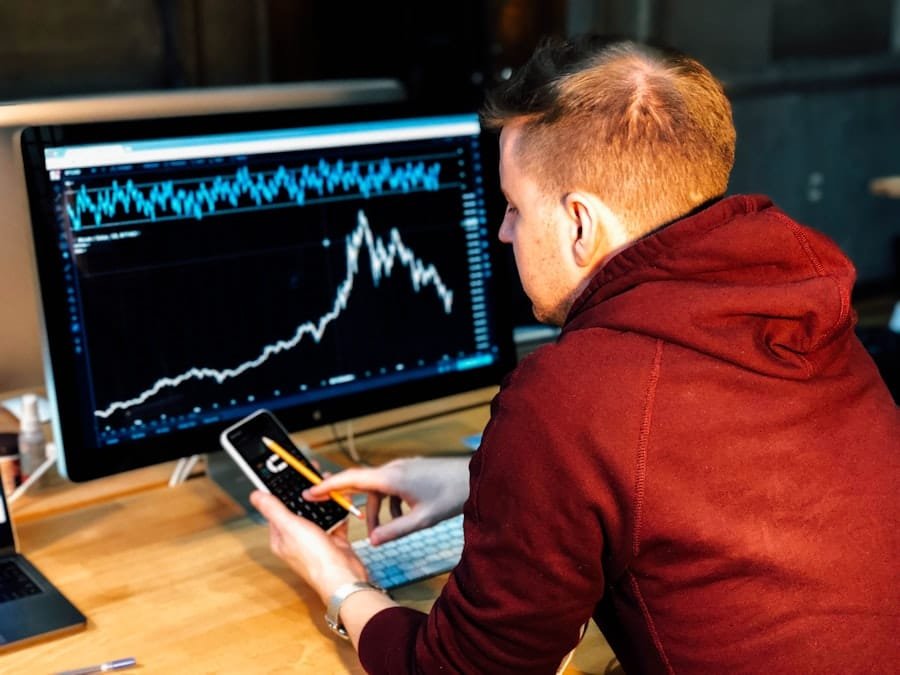Stock buybacks, also known as share repurchases, are a financial strategy employed by companies to purchase their own outstanding shares from the open market. This practice serves multiple purposes, including returning value to shareholders, demonstrating confidence in the company’s future, and counteracting share dilution caused by employee stock options. When a company repurchases its shares, it reduces the total number of outstanding shares, which can have various implications for both the company and its shareholders.
Companies typically execute stock buybacks through two primary methods: tender offers and open market purchases. In a tender offer, the company proposes to repurchase a specific number of shares at a predetermined price. Open market purchases involve the company gradually acquiring shares on the stock market over an extended period.
Funding for stock buybacks can come from various sources, such as cash reserves, debt financing, or surplus cash flow. It is important to distinguish stock buybacks from dividends, which are regular distributions of company profits to shareholders. In recent years, stock buybacks have gained popularity as a means for companies to return value to shareholders and manage their capital structure.
However, there is ongoing discussion regarding the effects of stock buybacks on share prices, earnings per share, market volatility, and company valuation. The impact of stock buybacks on these factors is a crucial area of study for investors, analysts, and policymakers.
Key Takeaways
- Stock buybacks refer to a company repurchasing its own shares from the open market, reducing the number of outstanding shares.
- Stock buybacks can lead to an increase in share prices due to the reduced supply of shares in the market.
- Earnings per share (EPS) can be positively impacted by stock buybacks as the reduction in shares outstanding can lead to higher EPS.
- Stock buybacks can contribute to market volatility as they can create short-term price fluctuations.
- Stock buybacks can impact company valuation by signaling confidence in the company’s future prospects and returning value to shareholders.
The Effects of Stock Buybacks on Share Prices
One of the most immediate effects of stock buybacks is their impact on share prices. When a company buys back its own shares, it reduces the number of shares outstanding in the market. This reduction in supply can lead to an increase in the price of the remaining shares, all else being equal.
In other words, stock buybacks can create upward pressure on share prices by reducing the supply of shares available for trading. On the other hand, some argue that stock buybacks can artificially inflate share prices by creating a short-term boost in demand for the company’s stock. This can lead to concerns about market manipulation and whether stock buybacks are being used to prop up share prices rather than for legitimate business reasons.
Additionally, critics argue that companies may be using stock buybacks to boost executive compensation tied to stock performance metrics, rather than focusing on long-term value creation for shareholders. Overall, the effects of stock buybacks on share prices are complex and can vary depending on the specific circumstances and motivations behind the buyback. It’s important for investors to carefully consider the potential impact of stock buybacks on share prices when evaluating investment opportunities.
Stock Buybacks and Earnings Per Share

Another key aspect of stock buybacks is their impact on earnings per share (EPS). When a company buys back its own shares, it reduces the number of shares outstanding, which can lead to an increase in EPS. This is because earnings are now being divided among fewer shares, resulting in higher EPS on a per-share basis.
As a result, stock buybacks can be seen as a way for companies to boost their EPS and potentially improve their financial metrics. However, some argue that the increase in EPS resulting from stock buybacks may not necessarily reflect an improvement in the company’s underlying performance. Instead, it may simply be a result of financial engineering through reducing the denominator (number of shares) in the EPS calculation.
Critics also point out that companies may be using stock buybacks to mask stagnant or declining earnings growth, rather than addressing fundamental business challenges. It’s important for investors to carefully consider the impact of stock buybacks on EPS and to look at other financial metrics and indicators to assess the overall health and performance of a company. While stock buybacks can lead to an increase in EPS, it’s crucial to evaluate whether this increase is driven by genuine improvements in the company’s profitability and growth prospects.
The Impact of Stock Buybacks on Market Volatility
Stock buybacks can also have implications for market volatility. On one hand, some argue that stock buybacks can help stabilize share prices and reduce volatility by providing support for the company’s stock. By reducing the number of shares outstanding, stock buybacks can create a floor for share prices and mitigate downside risk during periods of market turbulence.
On the other hand, critics argue that stock buybacks can exacerbate market volatility by distorting supply and demand dynamics in the market. They argue that companies may be using stock buybacks to artificially inflate share prices and create short-term price movements that are not reflective of underlying business fundamentals. This can lead to concerns about market efficiency and whether stock prices are being driven by genuine investor demand or by corporate actions such as stock buybacks.
Overall, the impact of stock buybacks on market volatility is a topic of ongoing debate and analysis. It’s important for investors and policymakers to carefully consider the potential implications of stock buybacks on market stability and efficiency.
Stock Buybacks and Company Valuation
Stock buybacks can also have implications for how investors and analysts value a company. When a company buys back its own shares, it reduces the number of shares outstanding, which can lead to an increase in metrics such as earnings per share and book value per share. This can potentially lead to an increase in the company’s valuation multiples, such as price-to-earnings (P/E) ratio or price-to-book (P/B) ratio.
However, some argue that the increase in valuation multiples resulting from stock buybacks may not necessarily reflect an improvement in the company’s underlying fundamentals. Instead, it may be a result of financial engineering through reducing the denominator (number of shares) in these valuation metrics. Critics also point out that companies may be using stock buybacks to artificially inflate their valuation multiples and create a more favorable perception among investors.
It’s important for investors and analysts to carefully consider the impact of stock buybacks on company valuation and to look at other indicators and metrics to assess the true value and potential of a company. While stock buybacks can lead to an increase in valuation multiples, it’s crucial to evaluate whether this increase is driven by genuine improvements in the company’s performance and prospects.
The Debate Over Stock Buybacks

The practice of stock buybacks has sparked significant debate among investors, analysts, and policymakers. Proponents argue that stock buybacks can be an effective way for companies to return value to shareholders, manage their capital structure, and signal confidence in their future prospects. They argue that stock buybacks can create shareholder value by reducing the number of shares outstanding and potentially boosting metrics such as earnings per share and valuation multiples.
On the other hand, critics argue that stock buybacks may not always create long-term value for shareholders and may be used for short-term financial engineering or to benefit corporate insiders. They argue that companies may be using stock buybacks to artificially inflate share prices and valuation multiples, rather than focusing on sustainable value creation through investments in research and development, innovation, or capital expenditures. The debate over stock buybacks is likely to continue as companies grapple with how best to allocate their capital and create value for shareholders.
It’s important for investors and policymakers to carefully consider both sides of the argument and evaluate the potential implications of stock buybacks on shareholder value and long-term company performance.
Regulatory and Policy Implications of Stock Buybacks
The debate over stock buybacks has also led to discussions about potential regulatory and policy implications. Some policymakers have raised concerns about whether companies are using stock buybacks to manipulate share prices or whether they are prioritizing short-term financial engineering over long-term value creation. This has led to calls for increased transparency and oversight of stock buyback programs.
In response to these concerns, regulatory bodies such as the Securities and Exchange Commission (SEC) have taken steps to enhance disclosure requirements for stock buybacks. Companies are now required to disclose more information about their stock buyback programs, including the amount of shares repurchased, the average price paid, and the funding source for the buyback. This increased transparency aims to provide investors with more insight into how companies are using stock buybacks and their potential impact on shareholder value.
Additionally, some policymakers have proposed changes to tax laws or corporate governance rules to incentivize companies to prioritize long-term value creation over short-term financial engineering. These proposals aim to encourage companies to invest in research and development, innovation, and capital expenditures rather than solely relying on stock buybacks to return value to shareholders. Overall, the regulatory and policy implications of stock buybacks are an important consideration for investors, companies, and policymakers alike.
It’s crucial for regulatory bodies to strike a balance between providing oversight and transparency for stock buyback programs while also allowing companies flexibility in managing their capital structure and returning value to shareholders.
If you’re interested in learning more about the impact of stock buybacks on market performance, you should check out the article “The Pros and Cons of Stock Buybacks” on The Econosphere’s blog. This article provides a comprehensive analysis of the benefits and drawbacks of stock buybacks and how they can affect a company’s market performance. You can read the full article here.
FAQs
What are stock buybacks?
Stock buybacks, also known as share repurchases, occur when a company buys back its own shares from the open market, reducing the number of outstanding shares.
How do stock buybacks impact market performance?
Stock buybacks can impact market performance in several ways. They can increase earnings per share, boost stock prices, and signal confidence in the company’s future prospects. However, some critics argue that buybacks can artificially inflate stock prices and divert funds from other uses such as research and development or employee compensation.
What are the reasons for companies to engage in stock buybacks?
Companies engage in stock buybacks for various reasons, including returning excess cash to shareholders, signaling confidence in the company’s future, and offsetting dilution from employee stock options.
What are the potential drawbacks of stock buybacks?
Critics of stock buybacks argue that they can lead to short-term thinking, inflate stock prices artificially, and divert funds from other uses such as research and development, employee compensation, and capital investment.
How do stock buybacks affect shareholders?
Stock buybacks can benefit shareholders by increasing earnings per share and potentially boosting stock prices. However, some argue that buybacks can also be used to enrich executives and insiders at the expense of long-term shareholders.
Are there regulations governing stock buybacks?
In the United States, stock buybacks are regulated by the Securities and Exchange Commission (SEC) and must comply with certain rules and restrictions. These regulations are designed to prevent market manipulation and ensure transparency.








